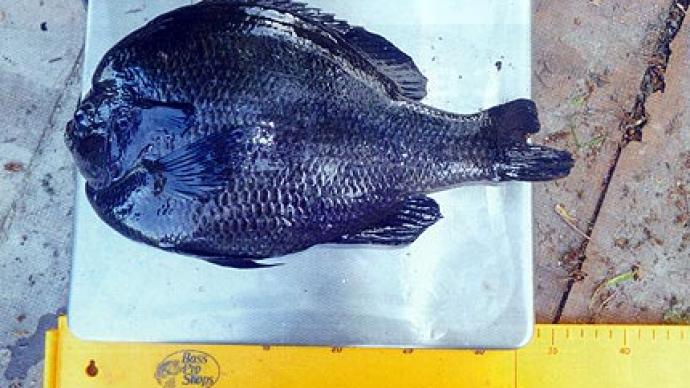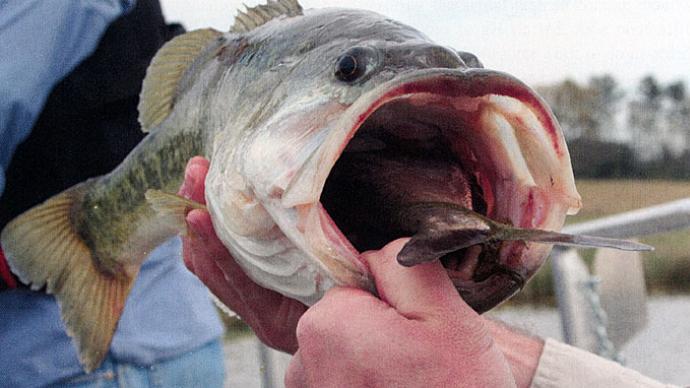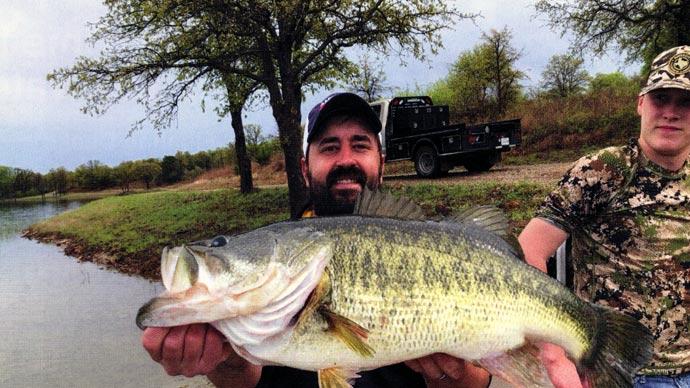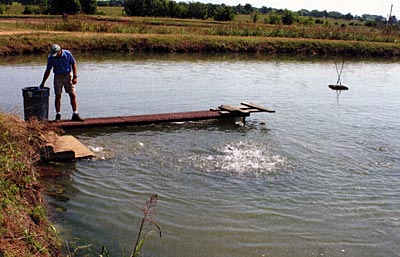
An interesting question was posed to our social media recently. "How can we use our small pond to grow fish to enhance genetics in our bigger lake"? Great question.
Senior Biologist for Bob Lusk Outdoors, Chad Fikes, is working on such a project at this moment. A client recently purchased an old fish farm with the intent of turning it into a premier duck hunting and fishing retreat. It was a brilliant purchase. This particular farm, in southern Oklahoma, was a catfish farm for at least three decades—from the mid-60s to the 90s, then sold to a young, enterprising fellow who worked there through high school, in the early 1990s. He shifted gears, and raised catfish to service a long-standing local market, but also decided to raise some sportfish, especially bluegills and feed-trained Largemouth bass for wholesale revenue. When he started getting a little long in the tooth, 20-odd years later, with some gray in his beard and kids off to college, he became weary of the commitments associated with a fish farm—it was parallel to the life of a dairy farmer.
He and his bride decided to sell the farm.
They sold it via a contract of sale, only to re-possess it a few years later.
At auction, our client won the bid, and decided to completely renovate the property. There are two nice-sized lakes, around seven acres each. The game plan was to renovate those old catfish ponds into bass fishing lakes.
There were another forty-plus ponds on the property. With the layout of the land, the owners chose to combine about 25 of those ponds into three, and turn them into duck paddies. Each can be drained, disked, and planted for flooding later. There were another eight ponds that didn't fit into either plan, primarily because of their elevations in relation to the rest of the property. During some brainstorming sessions, it was decided to use those small fish hatchery ponds to enhance the future fishery. Each has a fill valve, each has a drain pipe. With gravity-flow water rights from a spring, these guys have the best of all worlds. As part of their strategy, several ponds were designated to grow apex predators and others to grow forage fish to supplement the food chains of the bigger lakes.
Goals of the new landowner are to grow the biggest Largemouth bass as fast as possible.
Since this article is about managing mini-ponds, we'll keep our focus there.
Fikes convinced the client to use two of the small ponds to stock feed-trained F1 Tiger bass, 6-8" long, and feed them to satiation. His theory, a solid one, was to use this former aquaculture pond as—drumroll please—an aquaculture pond. With that healthy supply of good quality water, his approach makes sense. Overstock the fish, feed them like a feedlot, and then take the best of the best and use them in the bigger bass fishing lakes. Oh, and yes, those Fl's are receiving high quality fish food, as well as big numbers of bluegills to keep them in their natural predatory mode.
Here's the logic. They stocked 1,000 bass into two ponds, each less than an acre. Now, I'm not suggesting you stock that number. This project justifies the decision with a specific, focused purpose. They have abundant water, good management, a seasoned property manager, (the former owner), and a solid plan. Of those 1,000 bass, half of them are males, with zero chance to grow to trophy sizes.
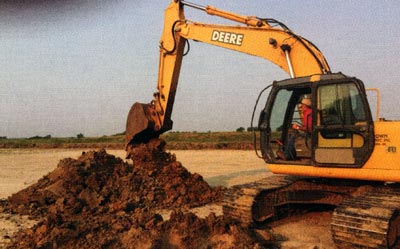
Of the remaining 500, we expect 20-25% to grow exceptionally fast, with another 20% to grow at above-average rates. The other females will be average or below. Since one of the goals is to grow trophy bass, the mission is to increase the odds of growing some huge fish.
Taking the top 40% of those females, about 200 of the original-stocked fish, and putting them into the key fishing lakes, increases the odds of growing some fish that might knock on the door of a state record for that state. Sounds like a strong strategy, eh?
The fish that don't make the cut will be stocked into a pond on the far north side of the property, for a quantity fishery and the skillet.
Here's what this idea means to you.
If you take your mini-pond, thoughtfully stock some fish of strong genetics, and grow them, you can transplant the best of the best in your key fishing lake (or lakes). Here's the main take home point. If you want to use your mini-pond to grow some fish, and take the best of the best, then understand what that truly means. Nature's best is a percentage. Don't expect to stock the best genetics and have all of those fish perform like Mr. America. Just like any other competition, there's only one champ. In your lake, in your pond, in your aquarium, there will be limited numbers of champions. If that's your mission, to grow some champions, your mini-pond can help do that.
I know, this seems a little far-fetched. It's certainly contrary to nature. If it wasn't, all we'd see are huge, record-breaking animals everywhere. All of us would be .400 hitters in the major leagues, just after throwing the winning pass in the Super Bowl.
If I hadn't used a mini-pond to enhance genetics for a bigger fishing lake, I wouldn't write about it. In today's world, lots of people want to gain some edge, some advantage. If that's you, there's a strategy.
If you're the kind-hearted one who doesn't care about genetic selection, use your mini-pond to grow some fish to enjoy, to eat, to stock into bigger water—or if you prefer, simply allow that little waterhole of yours to be what it already is.
But, if you want bigger fish, to use that small body of water to give your bigger waters a chance to excel, you can nudge it that direction. As for those guys in Oklahoma, they don't expect to grace the cover of the fishing section of the paper, holding a beast of a bass. They just want to set the stage for the best of the best to have an opportunity to reach their potential.
Seems like a pretty fair mission.
Reprinted with permission from Pond Boss Magazine

